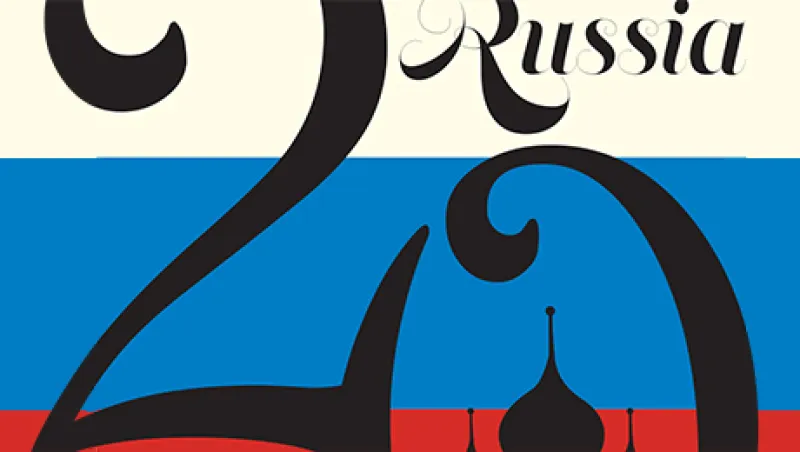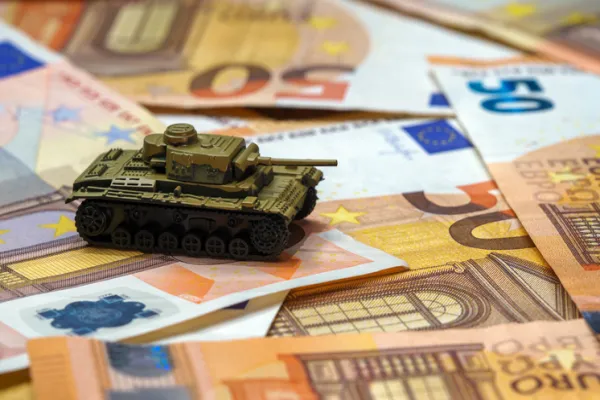Russian investment managers have reasons to be glum these days. Emerging markets have fallen badly out of fashion with global investors, and Russia has felt the impact. The Moscow Exchange’s MICEX Index has fallen by 7 percent this year and by just over 26 percent since it peaked in April 2011.
Yet the mood of these investors is reasonably upbeat. Eight of the 10 top firms in the Russia 20, Institutional Investor’s annual ranking of the largest Russian fund managers, increased assets under management in the year to June 30, 2013, and they are expecting more growth going forward. Most of the leading firms cater to domestic clients guided by a different investment calculus: A private pension industry born 11 years ago is growing rapidly, and managers can offer healthy returns on surprisingly stable local fixed-income markets.
Bank deposit rates are heading downward, making the bond investments that professionals offer more attractive and driving modest inflows into a mutual fund sector that had been moribund since the market crash of 2008. An entire new class of institutional investor, the university and cultural endowment, has sprung up over the past few years to top up asset managers’ coffers. Some big employers that previously managed their own pension assets, like the Russian diamond monopoly Alrosa, are moving to third-party firms instead. “We are having a very good run,” says Anton Rakhmanov, director of Sberbank Asset Management, an arm of the state-controlled bank. “The business is becoming more institutionalized as smaller players get out of the game.” The firm jumps three places in the Russia 20, to sixth place, thanks to a 48 percent surge in assets, to $3.6 billion.
Even the diminished band of managers who cater to foreign investors in Russia, dominated by No. 7 Prosperity Capital Management, have grown owing to some outperformance and a dogged global search for contrarians who will bet on the country’s long-term potential. “We are actually finding support among institutional investors in the U.S.,” Prosperity CEO Mattias Westman tells II. “West Coast investors in particular have a lot of experience with smart Russians in the IT industry, so they have moved past the cold war view.”
Russia’s asset management industry was catalyzed in 2002, when Vladimir Putin pushed through a reform allotting half of every citizen’s pension savings, or 6 percent of salary, to nonstate pension funds. One catch was that if a worker did not choose a management company, the default option would be a fund managed by the state-owned development bank Vnesheconombank. Over time, some 35 percent of working Russians have opted in to the nonstate system, swelling its assets to about 900 billion rubles ($27 billion), according to the Federal Financial Markets Service.
How much of this money is run by third-party asset managers according to international norms is more difficult to say. Many big employers encourage their workers to sign up with in-house pension funds. The two top asset managers in II’s ranking are both former subsidiaries of corporate giants: Gazprombank was spun off from natural gas monopolist Gazprom, and TransFinGroup came out of the Russian Railways, or RZD. TKB BNP Paribas Investment Partners, No. 4 on the list, is half owned by the railways and half by the French bank. (The TKB stands for Transkreditbank, a former financial arm of RZD.) VTB Capital Asset Management, which ranks third, and No. 6 Sberbank Asset Management are controlled by the country’s two largest lenders, both of them state owned.
Nonetheless, the asset management business is growing more competitive and professional as governance standards seep through to pension fund clients, managers say. The RZD pension fund now uses ten separate asset management firms, says Konstantin Nemnov, head of fixed income at TKB BNP.
Those asset managers have been producing steady returns thanks largely to a local corporate bond market that is all but untouched by international investors. Ruble-denominated sovereign bonds opened to global capital this year, when they became tradable through the Euroclear system. That had the ironic effect of destabilizing the market as foreign money jumped in and out. “Yields on ten-year OFZs [ruble Treasury bills] have ridden quite a roller coaster from 6.5 to 8.3 percent, then back down to 7.5 percent,” Nemnov notes. “The average yield on corporate blue chips has stayed within 50 basis points, 8 to 8.5 percent.”
Mixing in a few lower-rated companies can tweak those returns considerably. Sberbank’s $385 million fixed-income mutual fund, the Ilya Muromets Bond Fund, yielded 10.4 percent in ruble terms and 8.4 percent in dollars in the 12 months to late August.
The attraction of the local corporate market is increasing even as bonds come under pressure elsewhere in the world, says Vladimir Potapov, CEO of VTB Capital Investment Management. He and other managers expect the Central Bank of Russia to cut interest rates to stimulate the economy, which has nearly stopped growing, even though inflation remains stubbornly above 6 percent and the ruble has slipped 8 percent against the dollar this year. Elvira Nabiullina, who took over as CBR chief in June, is known to favor a softer monetary policy than her hawkish predecessor, Sergei Ignatiev. She has said she will cut interest rates once inflation falls within a previously proclaimed 5 to 6 percent corridor; the Economics Ministry has recommended widening this corridor so the bank could ease now.
The central bank is also adding liquidity by making repo credits available to commercial banks at a rate of 5.5 percent, Potapov says. That move, combined with slacker demand for loans as the economy slows, is causing banks to lower their deposit rates. The maximum ruble savings rate offered online by Sberbank last month was 8 percent, lagging returns promised by the bond market.
This arithmetic is reviving some faint signs of life in Russia’s retail investment business, which flourished briefly before 2008 but has lain dormant since. Sberbank, which acquired precrash retail leader Troika Dialog, reports that its mutual fund assets jumped more than 50 percent in the year to June 30, though the total remains modest at $704 million. VTB Capital draws about $300 million of its $5.2 billion in assets from mom-and-pop investors, says Potapov.
Potapov is much more excited about the emergence of endowments, which have sprung up since 2007, when Russia adopted enabling legislation. Well-heeled graduates of colleges like the Higher Economic School and fans of cultural institutions like the Bolshoi Theatre have poured an estimated $750 million into new endowments. Lately, trustees have started turning this money over to asset managers. Potapov says his firm runs more than $250 million in endowment money, and TKB BNP's Nemnov reports his company has jumped from one to four endowment mandates this year. “We are in discussions with a few more,” he adds. “Quite a few wealthy Russians are starting to help their universities.”
Asset managers who cater to foreign investors have long focused on Russian equities, a landscape that looks more challenging at the moment. Prosperity, if nothing else, can reap the benefits of former competitors falling by the wayside. Bill Browder’s Hermitage Capital, once the biggest investor in Russia, became mired in legal conflicts with the Russian government after 2005 and has left the market. New York–based Firebird Management still has a chunk of its $1.5 billion in assets in Russia but is concentrating on opportunities in the Baltic states and Mongolia.
TKB BNP has a substantial international client base, to judge by the fact that more than half of its $5.1 billion in assets is invested in equities. Research director Gennady Sukhanov says the firm has found buyers among pension funds in Latin American countries, such as Chile and Peru: “They went through their own transition a few years ago, so they can understand our market.”
Prosperity’s Westman says his firm has considered diversifying its long-only equities business into fixed income or a long-short fund but decided against it. “If investors go into a place as complicated as Russia, they want the full exposure to upside that equities give,” he reasons. He asks investors to look past “whether or not you like Putin” and focus on companies — like retailers Magnit and Dixy or oil producer Bashneft — that grow profits by 20 to 30 percent a year. “Share values ultimately depend on companies making productivity improvements that will lift profits, and Russia has plenty of those,” Westman asserts. • •






